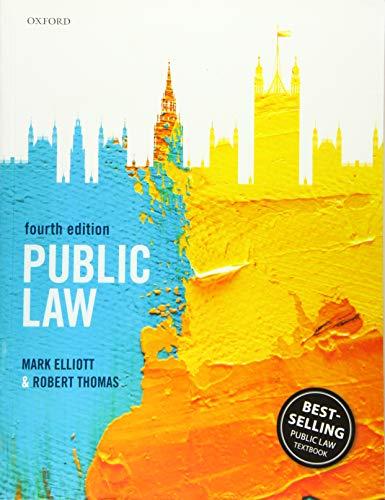Question
Mark is considering a mobile phone contract with Greedy Guts Phones. He is upset to find out that within the contract, there is a term
Mark is considering a mobile phone contract with Greedy Guts Phones. He is upset to find out that within the contract, there is a term that states that if Marc defaults on his monthly statement, there is a default clause that increases the cost of the phone by 10% per day. Mark considers this extreme, but the salesperson informs him that this is a standard term within their contract and is not negotiable. What argument could Mark make, and would he be successful?
Unfair contract terms
The Australian Consumer Law protects small businesses from unfair terms in standard form contracts.
- What contracts are covered?
- Types of terms that may be unfair
- Effect of having an unfair contract term
- Contracts and terms that are not covered
- If you think a term in your contract is unfair
- More information
What contracts are covered?
The law applies to standard form contracts entered into or renewed on or after 12 November 2016, where:
- it is for the supply of goods or services or the sale or grant of an interest in land
- at least one of the parties is a small business (employs less than 20 people, including casual employees employed on a regular and systematic basis)
- theupfront price payableunder the contract is no more than $300 000 or $1 million if the contract is for more than 12 months.
If a contract is varied on or after 12 November 2016, the law applies to the varied terms.
A standard form contract is one that has been prepared by one party to the contract and where the other party has little or no opportunity to negotiate the terms - that is, it is offered on a 'take it or leave it' basis.
Types of terms that may be unfair
The law sets out examples of terms that may be unfair, including:
- terms that enable one party (but not another) to avoid or limit their obligations under the contract
- terms that enable one party (but not another) to terminate the contract
- terms that penalise one party (but not another) for breaching or terminating the contract
- terms that enable one party (but not another) to vary the terms of the contract.
Ultimately, only a court or tribunal (not the ACCC) can decide that a term is unfair.
Importantly, terms that set the upfront price payable under the contract are not covered by the law.
For further information about how a court determines whether a term is unfair, and examples of unfair terms, see:Determining whether a contract term is unfair.
Effect of having an unfair contract term
If a court or tribunal finds that a term is 'unfair', the term will be void - this means it is not binding on the parties. The rest of the contract will continue to bind the parties to the extent it is capable of operating without the unfair term.
Contracts and terms that are not covered
While the unfair contract terms laws cover most standard form contracts and contractual terms, there are a number of exceptions.
Excluded contracts
- Contracts entered into before 12 November 2016 (unless renewed on or after this date)
- Shipping contracts
- Constitutions of companies, managed investment schemes or other kinds of bodies
- Certain insurance contracts (e.g. car insurance)
- Contracts in sectors exempted by the Minister - no sectors are currently exempt.
Excluded terms
- Terms that define the main subject matter of the contract
- Terms that set the upfront price payable
- Terms that are required or expressly permitted by a law of the Commonwealth, or a state or a territory (e.g. permitted under the Franchising Code or another prescribed industry code).
Step by Step Solution
There are 3 Steps involved in it
Step: 1

Get Instant Access to Expert-Tailored Solutions
See step-by-step solutions with expert insights and AI powered tools for academic success
Step: 2

Step: 3

Ace Your Homework with AI
Get the answers you need in no time with our AI-driven, step-by-step assistance
Get Started


